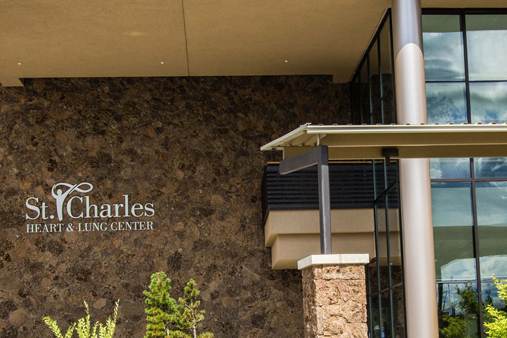Bend is a town that loves its beer, and the production and consumption of alcohol is a prominent part of the Central Oregon lifestyle.
Still, no one is immune to the dangers of alcohol misuse. That’s why St. Charles Health System has chosen alcohol misuse prevention as its community benefit focus for the 2020-2022 funding cycle.
“Our previous priority focus was suicide prevention, and we partnered with local organizations and individuals to provide QPR (Question, Persuade and Refer) suicide-prevention training to more than 2,500 people throughout Central Oregon over the past three years,” said Carlos Salcedo, manager of community partnerships for St. Charles. “Through that work we learned that engaging with the community is an effective way to help St. Charles meet its vision of creating America’s healthiest community, together.”
The American Academy of Family Physicians defines alcohol misuse as a spectrum of behavior, including risky (excessive) alcohol use, alcohol abuse or alcohol dependence. According to the 2018 Oregon Health Authority State of Health Assessment there has been a 38% increase in the overall rate of alcohol-related deaths in Oregon since 2001. Oregon also ranks third highest in the country for deaths related to alcohol.
“Alcohol misuse is a root cause of many chronic health and societal problems – liver disease, fetal alcohol syndrome, child abuse, domestic violence and the cause of many auto accidents that damage lives,” says Dr. Jeff Absalon, chief physician executive for St. Charles. “If we can reduce binge drinking, increase identification and interventions for alcoholism, and ensure that the norm for community gatherings that include alcohol is to drink responsibly, then Central Oregon will be healthier and safer.”
St. Charles leadership believes alcohol misuse prevention is a major health need in Central Oregon. As part of the Community Benefit program, the health system will partner with local organizations that are working to address this need in an effort to capitalize on the energy that surrounds the subject, and it will no longer sponsor events where alcohol is the primary focus, including fundraising events where alcohol is prominently featured in the title or promotional materials. “We hope that together with our community we can develop innovative ways to improve access to care where needed, increase educational and awareness offerings and reduce the negative impacts associated with alcohol misuse to the health of our communities,” says St. Charles’ 2020-2022 Regional Health Implementation Strategy.
The Community Benefit program will also provide financial support to groups that are trying to stem the tide of alcohol misuse in communities across the region. Exactly how that looks will be up to the individual communities, Salcedo said.
“Our hope is that each community will choose where to focus their time and energy around this issue. Maybe one will focus on teen drinking while another may want to focus on supporting parents who talk to their children about alcohol misuse,” he said. “St. Charles may find itself supporting communities in a variety of ways, such as offering financial assistance for projects identified by the community or providing medical experts and relevant research to enable community members to move forward in preventing the misuse of alcohol.”
Alcohol misuse prevention was identified as a priority based on the 2020-2022 Community Health Needs Assessment, which brought together population health data, input from community members, community survey results and analysis of available community resources to address health needs. St. Charles and the Central Oregon Health Council collaborated to conduct the research and develop the CHNAs.





